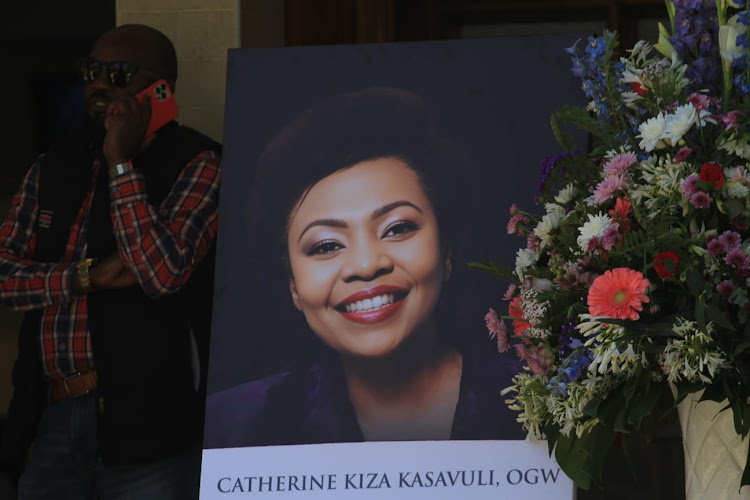- Details
- East Africa
- 1161
By JULIUS MBALUTO
Topi Lyambila read the Eulogy of Catherine Kasavuli, former Kenya’s best broadcaster. In the eulogy , Topi shared that many Kenyans never knew where the late newscaster for VOK and KTN TV came from.
“Some thought she was, not even Kenyan, some thought she was from Kambaland, Taita whatever, but she was from Nzululu, a village in Maragori.” Topi said.
Catherine Kasavuli was born on 22 Feb 1962. She was the fourth daughter of Ezekiel Kasavuli and Rachel Inyangala Kasavuli who were both career civil servants. She grew up in Nairobi West and went to school in Langata Road School and Ngara Girls High School.

Requiem Mass at Nairobi Church for Catherine Kasavuli
She started her media career in 1980 as a radio continuity announcer. She got this job after her uncle who listened to her reading the bible in church decided to take her to VOK for voice testing which she passed. She later attended KIMC (Kenya Institute of Mass Communication)
In 1990, Catherine was recruited by KTN joining the likes of Joseph Warungu, Njoroge Mwaura veteran broadcasters. Catherine mentored many journalists into the industry. She later founded Kasavuli Media Group where she trained and mentored more journalists.
In 2007, she joined Citizen TV as Group Corporate Manager. In 2021, she was awarded Order of the Grand Warrior by President Kibaki in recognition to her outstanding Service.
Catherine was called back to KBC TV where she started to host the Legends’ show. Unfortunately, she fell ill and was admitted to Kenyatta National Hospital and later died on 29th December 2022.
Speaking at the Eulogy, Martha Karua said Catherine was amiable and had a smile throughout. She will be buried on 14th January 2023.






